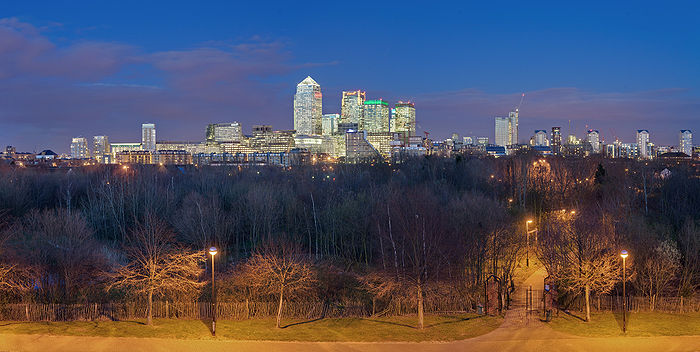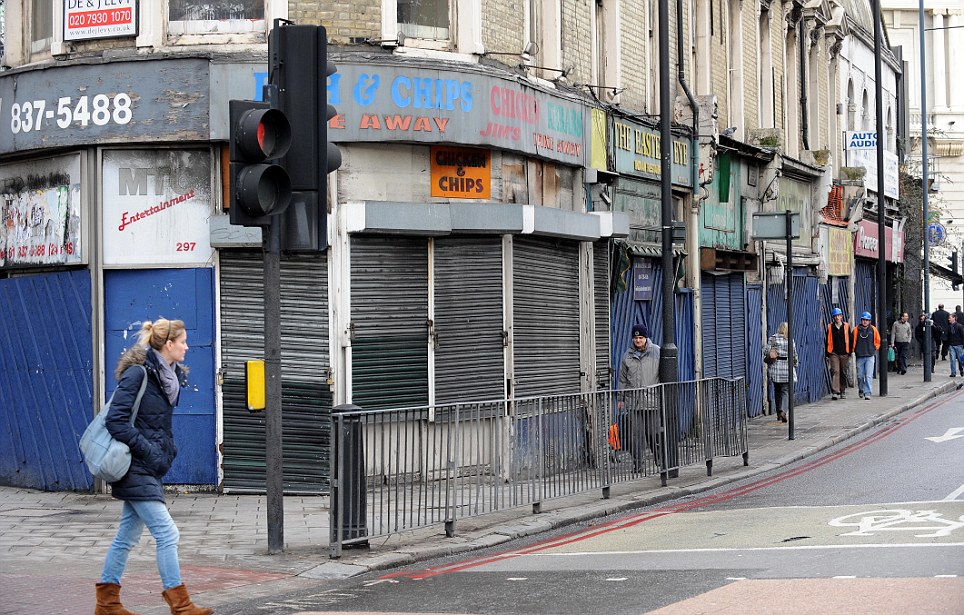Property Investor's Market Update - by PropertyInvesting.net
03-16-2021
PropertyInvesting.net team
The first part of this report gives an update on COVID-19 - because this global pandemic is so critical to property investment and the economy and business in its totality. We then cover the property investment environment, trends and outlook.
COVID-19 Case Dropping Sharply: The UK is now excelling in the implementation of the COVID-19 vaccination programme. By the end of March half of all adults will have been vaccinated a huge success. This is an example of University Research, NHS, Government and the private sector pharma companies working seamlessly together in the UK to deliver the programme. The supply chain management and research to manufacturing process has been impressive. It really is the best thing the UK has implemented for years. One can see the response in the levels of infections crashing down and the deaths also crashing down to around 5% of what they were about 6-8 weeks ago.
EU Response: In comparison, the EU mainland response has been frankl y woeful. They were late approving the vaccines, late ordering the vaccines and the non-elected Eurocrats arguing amongst themselves and sub-optimal roll-outs and delays is having a depressing effect on business and people's lives. Paris looks like it may need another lockdown and Italy has just gone back into lockdown. This virus does not want to go away with mutations prolonging the agony and death tolls. What is probably most upsetting for Britain is the EU blaming the UK firstly for lack of exports of the vaccine from the manufacturing plants in the UK (they briefly breached the Northern Ireland protocol in desperation 29 January) then starting a dangerous suspension of the AstraZeneca vaccine - because of unsubstantiated fears of blood clotting - in France, Germany, Italy, Spain and Sweden. As the statistics experts tell us and the medical experts in the UK the chance of blood clotting is statistically no different whether you are vaccinated or not. So many people get blood clot
y woeful. They were late approving the vaccines, late ordering the vaccines and the non-elected Eurocrats arguing amongst themselves and sub-optimal roll-outs and delays is having a depressing effect on business and people's lives. Paris looks like it may need another lockdown and Italy has just gone back into lockdown. This virus does not want to go away with mutations prolonging the agony and death tolls. What is probably most upsetting for Britain is the EU blaming the UK firstly for lack of exports of the vaccine from the manufacturing plants in the UK (they briefly breached the Northern Ireland protocol in desperation 29 January) then starting a dangerous suspension of the AstraZeneca vaccine - because of unsubstantiated fears of blood clotting - in France, Germany, Italy, Spain and Sweden. As the statistics experts tell us and the medical experts in the UK the chance of blood clotting is statistically no different whether you are vaccinated or not. So many people get blood clot s anyway. The suspension of the AstraZeneca roll-out in most major countries in Europe in our view is a big mistake and will lead to hundreds or thousands of extra deaths from COVID-19. The politicians that are bad mouthing the AstraZeneca vaccine should look themselves in blaming this vaccine for their woes they will accelerate their agony and death toll in their respective countries and thats a real serious shame. It also highlights exactly why 52% of the UK population voted to leave the EU and then this view was confirmed with a large Tory majority end 2019 off the back of a Lets get Brexit done campaign. If we had still been in the EU we would likely have had a similar vaccination performance as mainland Europe or possibly worse - not having such a strong voice as France and Germany in their affairs.
s anyway. The suspension of the AstraZeneca roll-out in most major countries in Europe in our view is a big mistake and will lead to hundreds or thousands of extra deaths from COVID-19. The politicians that are bad mouthing the AstraZeneca vaccine should look themselves in blaming this vaccine for their woes they will accelerate their agony and death toll in their respective countries and thats a real serious shame. It also highlights exactly why 52% of the UK population voted to leave the EU and then this view was confirmed with a large Tory majority end 2019 off the back of a Lets get Brexit done campaign. If we had still been in the EU we would likely have had a similar vaccination performance as mainland Europe or possibly worse - not having such a strong voice as France and Germany in their affairs.
Commendations for the Vaccine Programme: Anyway, hats off to the Oxford AstraZeneca team, NHS roll-out and the UK getting after the only way to stopping this dreadful pandemic by va ccinating as many people as possible. Anyone that does not want to get vaccinated should think that not only are they doing themselves a medical health disservice, but they are also risking people around them by prolonging the pandemic in the UK and overseas. If you think to yourself that if you get the vaccination, there is probably a residual 10% chance of ever catching the COVID-19 virus or seeing any symptoms and in addition, the chance of dying from such an infection might only by 10% of what is was without the vaccination because symptoms are suppressed. That means getting vaccinated probably reduces your risk of dying from COV-19 by about 100 (10% x 10%) compared not being vaccinated. Anyone that choses not to be vaccinated is a surely a mug!
ccinating as many people as possible. Anyone that does not want to get vaccinated should think that not only are they doing themselves a medical health disservice, but they are also risking people around them by prolonging the pandemic in the UK and overseas. If you think to yourself that if you get the vaccination, there is probably a residual 10% chance of ever catching the COVID-19 virus or seeing any symptoms and in addition, the chance of dying from such an infection might only by 10% of what is was without the vaccination because symptoms are suppressed. That means getting vaccinated probably reduces your risk of dying from COV-19 by about 100 (10% x 10%) compared not being vaccinated. Anyone that choses not to be vaccinated is a surely a mug!
Housing Market: The UK housing market is looking surprisingly buoyant and its picking up steam in March. We outline some of the main reasons below:
Successful vaccination programme with lockdown restrictions starting to be eased
Brexit uncertainties dying away
Ultra-low Bank of England interest rates and low mortgage rates
Improving valuations in surveys as pandemic uncertainties ease 
Continued stamp duty holiday to end June
Stable Tory government with big majority
Start of international business travel and tourism expected in April
Improving employment prospects later in 2021
Some key concern are
High levels of unemployment and a further increase likely once furlough ends in Sept 2021
Sterling weakness due to excessive currency printing and lack-lustre UK economic performance that drives up inflation (higher import costs) and then these leads through to base rates and mortgage rates.
A further wave of COVID-19 infections now schools have opened (seems unlikely but possible despite vaccination roll-out speed and effectiveness)
London flat prices have been depressed since the pandemic started March 2020, particularly prime London prices. However we expect prices to start recovering soon for the following reasons:
Younger wealth people start to shift back into the cities and start working from of fices again from April onwards
fices again from April onwards
Oil prices have risen from $20/bbl April 2020 to $70/bbl mid March 2021 meaning wealthy African and Middle Eastern buyers will be looking to buy prime luxury apartments in places like Kensington, Chelsea and Belgravia.
Changes planned 2021-2022 for Leaseholders will make it relatively more desirable to be a Leaseholder compare to pre-pandemic
Wealthy mobile citizens around the world will again realise why London is voted the number 1 most desirable place to live in the world as lockdown restrictions are lifted and the arts, cafes, restaurants, theatre, attractions, shops and amenities of central-west London will entice buyers again
Flood of wealthy investors from Hong Kong
As other developed nations currencies strengthen the Pound Sterling weakens relatively then central London property prices look more attractive.
Trends: In the last Newsletter we touched on some trends triggered or accelerated by the pandemic. Weve like to add a few further comments since this might help you frame your investment decisions:
Less Spending and More Saving: People with good salaried or contractor-cons ultant jobs have been able to save far more than normal because they have not been able to spend on services such as travel, hospitality, cafes, bars, theatre, cinema etc. There has been less driving, less holidays, very little foreign travel and very little commuting which has allowed people with steady jobs to save more. There is also likely been a realisation about how important your home and local surrounding are highlighted by lockdowns and how all those expensive foreign holidays are just distant memories. Its better to invest in your home than in someone else foreign hotel or holiday home!
ultant jobs have been able to save far more than normal because they have not been able to spend on services such as travel, hospitality, cafes, bars, theatre, cinema etc. There has been less driving, less holidays, very little foreign travel and very little commuting which has allowed people with steady jobs to save more. There is also likely been a realisation about how important your home and local surrounding are highlighted by lockdowns and how all those expensive foreign holidays are just distant memories. Its better to invest in your home than in someone else foreign hotel or holiday home!
Home Working: Home working has had its positives but its also highlights how important space and rooms for home working people with good office jobs are now looking to spend more time in the future working from home families with kids need a home office. Families also need an outdoor space so the family does not get on top of one another. This has lead to a drive to move further from dense urban city areas to lower prices larger homes with garden. Its worth noting this trend my partially reverse after this lockdown ends starting approx. April 2021 but the long term trend is now set we believe. The realisation of home important valuable an nice fairly large home with a garden or sorts is.
Work Patterns: Flexible working was becoming more popular with companies in 2019 but the pandemic has massive acerated this trend and the precedent is set company have survived and even thrived with home working and offices being closes. People will start working again from office starting likely April 2021 onwards but we think many people might only work in the companies or government offices say 3 days out of 5 in the future. We would expect 40% of office spaces to be redundant moving into the mid 2020s.
survived and even thrived with home working and offices being closes. People will start working again from office starting likely April 2021 onwards but we think many people might only work in the companies or government offices say 3 days out of 5 in the future. We would expect 40% of office spaces to be redundant moving into the mid 2020s.
Longer Distance Commuting: What this means for the property investor is very important indeed for the longer term. It means people will be able to generally live further from their offices because they wont need to commute in every day. Hence for example instead of living in Kentish Town, someone might choose to live in the countryside near Bedford instead. It also means people will be looking for slightly more rooms one or two will be small home office rooms. Home garden offices will also be popular. Small flats in central city locations might still be reasonably popular but not as popular as they used to be. Flats with outdoor spaces like terraces, gardens or balconies will be sold at a premium since the threat of another pandemic or resurfacing of COVID wont go away quickly.
Commercial Office Investment Disaster: Critically office commercial property will be permanently depressed because companies might only need 50-60% of the offi ce space they require pre-pandemic. Commercial office rental rates will very likely drop sharply and stay depressed for years. Less offices will be built. Older offices with poor energy performance will be blighted. The best office spaces will still be okay, but they wont command the sky-high rentals for instance City of London, central Manchester that they did pre-pandemic.
ce space they require pre-pandemic. Commercial office rental rates will very likely drop sharply and stay depressed for years. Less offices will be built. Older offices with poor energy performance will be blighted. The best office spaces will still be okay, but they wont command the sky-high rentals for instance City of London, central Manchester that they did pre-pandemic.
Retail: As one can see clearly across the UK there are more and more out of town retail parks large stores in clusters and the death of the high street has been accelerating for years. But the pandemic has increased this further. We all knew the internet would have a profound effect on the way we shopped at least a decade ago (Amazon, eBay etc) but the pandemic accelerated this further and we are all frankly far more used to ordering things online now and getting home delive ries. Many people also see the futility of high street shopping problems with driving-parking and inefficient use of ones time. So the following trends have been baked in by the pandemic:
ries. Many people also see the futility of high street shopping problems with driving-parking and inefficient use of ones time. So the following trends have been baked in by the pandemic:
o More online shopping (less shopping in the high street)
o More deliveries, vans and special deliveries (less car travel to the high street)
o Selective shopping for larger items and bulk purchases at out of town shopping centres-parks
o Better use of leisure time by shopping online
Conversion of High Street shops to Flats: This all spells the death of the shops in many high streets. The business opportunity is concerting these to flats this is a subject we covered in our last Newsletter 1 March 2021 (please refer to that article). 
Golf Courses: We predict the death of the golf course. Reasons are multiple:
Considered old fashioned and rather snooty by younger people
Less upper middle class salaries people that can pay £1000 to £2000 annual membership fees
The women arent generally keen on their partners spending all day on the golf course
People would rather be with their kids and particate in more dynamic (high impact) sports
People network online more these days and the old boys club and golf course club house events are less important to most people these days.
One idea is to covert golf courses that are unsustainable to housin g estate and in doing so it would help to solve the housing crisis and provide some nice family homes in a park setting. One benefit is that golf courses are normally close to cities or towns and have utilities installed and there are normally reasonable roads to golf courses. Okay, we would not expect golf course like Wentworth to become unpopular but some of the less popular fringe or municipal golf courses might close like the airfields once closed and these might make super locations for nice housing estates in a leafy environment.
g estate and in doing so it would help to solve the housing crisis and provide some nice family homes in a park setting. One benefit is that golf courses are normally close to cities or towns and have utilities installed and there are normally reasonable roads to golf courses. Okay, we would not expect golf course like Wentworth to become unpopular but some of the less popular fringe or municipal golf courses might close like the airfields once closed and these might make super locations for nice housing estates in a leafy environment.
We hope you have found this Newsletter insightful for your property investment portfolio and has given a few pointers and trends that help form your investment ideas. If you have any queries, please contact us on
enquiries@propertyinvesting.net
www.google.co.uk - recommended search engine

